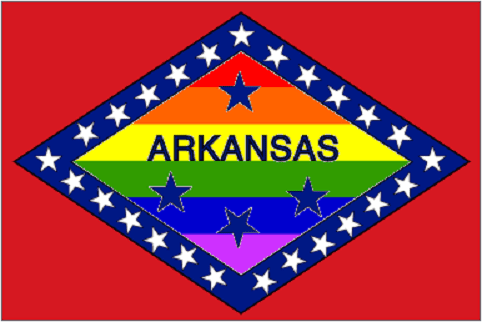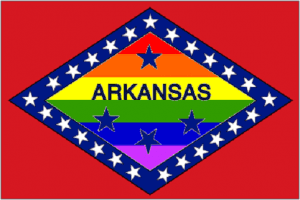If we could travel back in time just 5 years, it would seem impossible to imagine the pace at which marriage equality is occurring today. To think that even less than 2 years ago, no popular vote granting same-sex marriage rights had been won in any state. That didn’t occur until the November 2012 elections.
But since those first wins at the ballot box in Washington state, Maine and Maryland in 2012, large parts of the United have seen nothing short of a transfiguration on LGBT marriage rights. Sometimes it seems like magic to sit and watch this play out from a southern state like Texas or Arkansas… it feels as though time is moving forward in other areas, yet we’re still stuck squarely in the past. But this swift movement towards equality was anything but magic. It was earned through the blood, sweat, voices, votes and tears of millions of people working to advance these rights. For the past several years, marriage equality has been the central orb around which the country’s largest and most powerful Civil Rights organizations have revolved. You throw all of your time and money into a cause, and hopefully you yield some results.
But a new report from The New York Times reveals that this singular focus on marriage equality is about to change. The movement itself is now turning to those that have stood patiently on the sidelines…
The country’s leading gay rights groups and donors, after a decade focused on legalizing same-sex marriage, are embarking on a major drive to win more basic civil rights and workplace protections in Southern and Western states where the rapid progress of the movement has largely eluded millions of gay men and lesbians.
The effort will shift tens of millions of dollars in the next few years to what advocates described as the final frontier for gay rights: states like Mississippi, Georgia, Arkansas and Texas, where Republicans dominate elected office and traditional cultural views on homosexuality still prevail.
The new strategy reflects the growing worry within the movement that recent legal and political successes have formed two quickly diverging worlds for lesbian, gay, bisexual or transgender Americans: one centered on the coasts and major cities, and another stretching across the South and up through the Rocky Mountains, in states where gays enjoy virtually no legal protections against discrimination.
“We can’t allow two distinct gay Americas to exist,” said Tim Gill, a Colorado philanthropist whose foundation is putting about $25 million into a handful of mostly conservative-leaning states over the next five years. “Everybody should have the same rights and protections regardless of where they were born and where they live.”
The push is likely to encounter resistance. Gay rights groups will be engaging in communities where churches and other religious institutions are tightly woven into daily life, and where efforts to expand civil rights protections to gays are sometimes viewed as an attack on people of faith…
In some states, organizations like the Human Rights Campaign, the American Civil Liberties Union and groups Mr. Gill helps fund plan to lobby for nondiscrimination ordinances in housing and employment and for legislation allowing gay parents to adopt. In other states, they are building new grass-roots organizations and pushing for the election of openly gay and lesbian officials where there are none.
Those involved in the planning described it as the biggest realignment of gay rights activism in a decade, one that will shift the movement’s focus into territory where there is almost no unified network of support and where gay people are more likely to hide who they are, making them more difficult to reach.
Just the American Civil Rights movement two generations ago, today’s fight for equality has always been about much more than marriage. In my opinion this shift in focus is welcome, and long overdue. When they do get to the south, they will be able to build on the great work of groups like the Campaign for Southern Equality. This fight is already being waged, but with the help of larger resources, it can be won decisively.
For this shift, organizations like the Human Rights Campaign are in capable hands. The group’s President, Chad Griffin, knows much of the territory to which he is taking this next great push. He is a native Arkansan, and grew up in the small, bucolic college town of Arkadelphia, Arkansas (full disclosure, I went to college in the very same town). Knowing the struggles that some of our most vulnerable LGBT Americans face, Griffin’s voice is sure to be an even greater attribute in this “new” frontier.
(photo credit: cogvv.com)


It is about time we look at basic rights for GLBT people for employment and housing. Good for them.